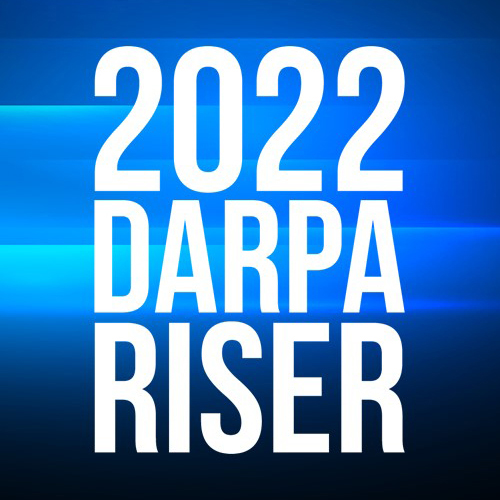News
On the Rise: Three Johns Hopkins APL ‘Standouts’ Earn DARPA Early Career Honor
 Three staff members at the Johns Hopkins Applied Physics Laboratory (APL) in Laurel, Maryland, are among 163 early-career researchers selected as Defense Advanced Research Projects Agency (DARPA) Risers for 2022.
Three staff members at the Johns Hopkins Applied Physics Laboratory (APL) in Laurel, Maryland, are among 163 early-career researchers selected as Defense Advanced Research Projects Agency (DARPA) Risers for 2022.
Sarah Adams, Colin Trout and Gregory Falco were nominated by DARPA program managers for the honor, which recognizes “up-and-coming standouts in their fields, whose research is related to national security and demonstrates the potential to lead to technological surprise — the heart of DARPA's mission.”
Adams, Trout and Falco will present posters on their work to DARPA program managers and leadership, as well as university faculty, at DARPA Forward, a series of six regional conferences held at leading research and development universities around the nation. DARPA Forward brings together scientists, engineers and other innovators for presentations, talks and networking opportunities to discover and engage new communities of talent.
Sarah Adams
Adams is a materials engineer with expertise in aerosol jet printing and nontraditional packaging and process development for novel printed electronics applications. She joined APL in 2020 and leads the Printed Optical Structures Tuned for Unique, Reliable Electronic Systems (POSTURES) team, which has demonstrated fully aerosol jet-printed optical waveguides, an advancement that could lead to improvements in light-based sensing and photonic packaging.
“I would describe this recognition as surreal,” said Adams. “To be nominated at all was huge for me, and now having been selected is just incredible. I believe this recognition is a reflection of the high-quality work of the entire POSTURES project team.”
She will attend the DARPA Forward event at Washington State University on Sept. 13, and present on the “Future of Optical Computing for Ubiquitous Service (FOCUS).”
“The vision I will be presenting at the DARPA Risers event is an extension of this POSTURES work: developing technologies to translate optical computing, signaling and detection techniques into state-of-the-art additive manufacturing capabilities,” explained Adams.
Colin Trout
Trout, a quantum information theorist and an expert in quantum error correction, simulation of quantum systems and quantum algorithms, described the recognition as a “great honor.”
“It’s exciting to see the field of quantum computing exploding and being recognized alongside more traditional fields of science and technology,” said Trout, who interned with APL in 2016 and joined the Laboratory as a staff member in 2020. “It’s a great responsibility to be an advocate for my field to the members of DARPA.”
Trout, who will also attend the Washington State University event, will present “Harnessing the Power of Quantum: Classical Supercomputer Design for Controlling a Quantum Computer,” a proposal for a program that he summarized as “focused on the non-quantum technologies that will make or break the viability of building quantum computers.”
“Building an impactful quantum computer is a monumental task on all fronts,” said Trout, adding that building an interface from the non-quantum technologies of today is an underexplored arena.
Gregory Falco
Falco is an assistant professor in the Johns Hopkins University Department of Civil and Systems Engineering and the Institute for Assured Autonomy, where he holds an appointment at APL. His research involves the security, safety and trust risks of artificial intelligence-enabled mission systems, with a focus on challenges in the energy, space, public safety, transportation and insurance sectors.
Falco will attend the DARPA Forward event at Colorado State University on Aug. 30, where he will present “A Resilient, Zero-Trust Architecture for Hosted Payload and Space Infrastructure as a Service: The (ORBITS) Architecture.” His presentation will offer a look at enabling cooperative engagement of untrusted parties — or even adversaries — across space infrastructure in the same way we experience cloud services or other computing infrastructures. Falco recently received a DARPA Young Faculty Award for this work.
“The recognition means that I’m thinking about DARPA hard problems in a DARPA hard way and am on the right track,” said Falco. “The DARPA Risers recognition also indicates that my research is increasingly significant for our country and that my expertise can be deployed to ensure our space supremacy.”